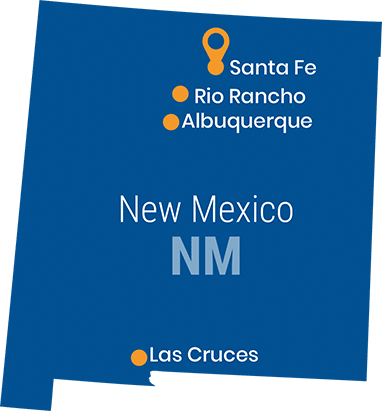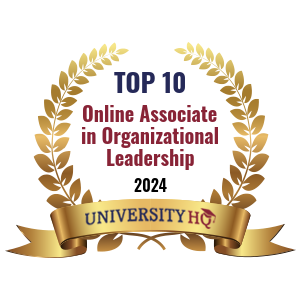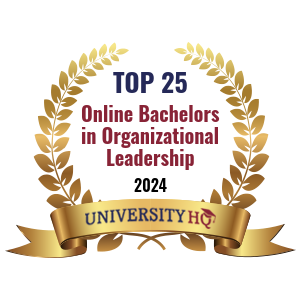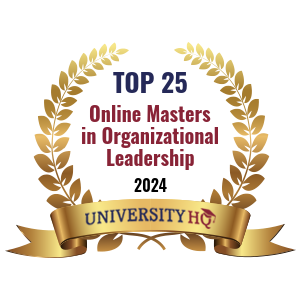What is Organizational Leadership?
An organizational leader is someone who possesses the skills, knowledge, and qualities necessary to lead and manage a group of individuals. They are responsible for setting a clear vision and direction for the organization, making strategic decisions, and ensuring that the team works cohesively towards achieving common goals.
Leadership professionals are individuals who have acquired extensive skills and expertise in leadership. Typically, this requires education or training in areas such as organizational behavior, organization development, human resources, or management - in addition to possessing an in-depth knowledge of human psychology, group dynamics, and the principles of effective leadership.
A leadership professional is not just a manager or supervisor; they go beyond simply giving orders and delegating tasks. They actively engage with their team members, fostering a positive and productive work environment. They empower their employees, encourage their personal and professional growth, and provide support and guidance when needed.
One of the key qualities of an organizational leader is the ability to communicate effectively. They must be able to articulate their vision, expectations, and goals clearly to their team members. They should also be skilled listeners and be open to feedback and suggestions from their employees. Effective communication is essential for building trust, resolving conflicts, and fostering collaboration within the team.
Another key aspect of management is making informed and well-considered decisions. Leaders should have the ability to analyze and compare options, evaluate risks and benefits, and make decisions that align with organizational objectives. They should also be flexible enough to navigate unexpected challenges or changes that arise within their business landscape.
Organizational leaders also play a critical role in cultivating a positive organizational culture. They set the tone for the workplace, ensuring that it is inclusive, respectful, and supportive. They promote teamwork, encourage innovation, and recognize and reward the achievements of their team members. A healthy and positive organizational culture can significantly enhance employee satisfaction, productivity, and overall organizational success.

Featured Online Programs
Online Organizational Leadership Education in New Mexico
Organizational leadership is a crucial aspect of running successful businesses. It involves strategic planning, decision-making, and effectively managing people and resources to achieve organizational goals. In the beautiful state of New Mexico, this field of leadership is growing and offering numerous opportunities for individuals looking to make a difference.
New Mexico boasts a diverse economy that encompasses industries as diverse as healthcare, energy, tourism, and technology. Each sector requires competent leaders with excellent organizational skills who can lead teams effectively; leadership or management professionals in New Mexico play a pivotal role in shaping these industries' future and contributing to businesses' overall success.
Effective management is crucial for organizations to thrive in today's rapidly changing and competitive environment. Leaders are responsible for setting strategic goals, guiding teams, fostering innovation, and adapting to evolving market conditions. In New Mexico, where various industries are prevalent, skilled leaders are in high demand to ensure the growth and sustainability of businesses across sectors.
While precise employment statistics for organizational leadership positions in New Mexico may vary, it’s evident that there is a need for individuals with strong leadership skills in the state. According to the Bureau of Labor Statistics (BLS), as of May 2020, this state had approximately 13,880 individuals employed in management occupations, which includes various leadership roles. These occupations encompass a wide range of positions such as general and operations managers, sales managers, and human resources managers.
In New Mexico, according to BLS statistics, the median annual salary for management occupations reached $91,250 as of May 2020 - providing ample opportunities for individuals interested in management to earn a lucrative wage while making an impactful mark on their respective fields.
NM offers a wealth of opportunities for individuals interested in pursuing a career in organizational leadership. By acquiring a degree in this or a related field, individuals can develop the skills and knowledge necessary to excel in leadership positions. Many colleges in the state offer programs tailored to meet the growing demand for skilled leaders in the state, both Bachelor's of Science and of Arts, as well as more advanced program options. Options in the state include New Mexico Highlands University, New Mexico State University in Las Cruces, a New Mexico community college, and more.
Online Associates (AS)

An associate degree in leadership or management is a valuable educational pathway for those aspiring to enhance their leadership skills and advance their role in various industries without spending four years in school before starting to work. These two-year programs provide students with a comprehensive understanding of leadership principles, effective communication, problem-solving techniques, and team management.
Through a combination of theoretical coursework and practical applications, students should learn to navigate organizational challenges, foster collaboration, and adapt to dynamic work environments. Graduates with an associate degree in this field often find opportunities in entry-level management positions, or they might use it as a steppingstone to pursue higher education in leadership or related fields. This degree equips individuals with the necessary tools to succeed as leaders and make positive impacts on their respective workplaces and communities.
Online Bachelors (BS)

Organizational leadership is a field of study that focuses on developing the skills and knowledge necessary to effectively lead and manage a team or organization. Many colleges offer a bachelor's program in management, providing students with a comprehensive understanding of the principles and practices of effective leadership and preparing them for entry-level and higher-level roles.
A management program typically covers a wide range of courses on topics including communication skills, problem-solving techniques, strategic planning, team building, and conflict management. Students also learn about various leadership styles, theories, and ethical decision-making processes. Through coursework and practical experiences, such as internships or capstone projects, a student can graduate with hands-on experience applying these concepts in real-world settings.
Upon completion of bachelor's in this field, graduates are prepared to pursue various career opportunities. They may find employment in industries such as business management, human resources, non-profits, government agencies, or healthcare administration. Additionally, some individuals choose to further their education by pursuing advanced degrees in this or related fields to enhance their career prospects.
Overall, earning a bachelor's in this or a similar field can provide individuals with the necessary skills and knowledge to excel in leadership positions across various industries. With their focus on effective communication, problem-solving abilities, and ethical decision-making processes - these program equip students with the tools they need to succeed in today’s complex business world. Whether it's leading teams or managing entire businesses, graduates of these programs are well-prepared for the challenges that come with guiding others toward success.
Find Your Online Organizational Leadership Program
Online Masters (MS)

Great leadership is a critical aspect of any successful business or organization. As a result, many colleges offer advanced degree programs specifically tailored to this field. A program in this field will provide individuals with courses that teach the knowledge and skills necessary to lead and manage teams, departments, and businesses effectively.
An advanced management program typically covers a wide range of subjects including strategic planning, change management, team dynamics, ethics in leadership, and organizational behavior. Students also learn how to effectively communicate and motivate employees, make informed decisions based on data analysis, and create a positive work culture. Additionally, these programs often incorporate real-world case studies and practical experiences to ensure students can apply their learning directly in professional settings.
Graduates with a master's degree in this field have various career opportunities available to them. They can pursue roles such as human resources manager, operations manager, project manager, executive director, or consultant. The versatility of this degree allows individuals to work across industries in both the public and private sectors. With the growing demand for effective leaders who can navigate complex organizational challenges successfully, earning a master's degree in leadership or management could be an excellent investment for those looking to advance their careers in management positions.
Online Doctorate (PhD)
Many colleges offer degree programs in organizational leadership or management in business, including PhD programs. These advanced programs provide students with an in-depth understanding of leadership theories, research methodologies, and practical skills necessary for leading and managing complex departments.
A PhD in leadership or management is designed to prepare individuals for careers in academia or high-level positions within firms. In these programs, students engage in rigorous coursework that covers topics such as organizational behavior, strategic management, ethics and social responsibility, change management, and human resource development. Additionally, students are often required to conduct original research projects and write a dissertation on a topic of their choice related to organizational leadership.
The goal of earning a PhD in this field is to develop scholars who can contribute to the advancement of knowledge in the field through original research and make meaningful contributions to practice by providing evidence-based insights for improving organizational effectiveness. Graduates of these programs may go on to become professors at universities or consultants who work with businesses to enhance their leadership capabilities. By pursuing a PhD in this field, individuals gain not only specialized knowledge but also the skills needed for successful jobs as leaders and researchers within various industries.
Online Certifications
Organizational leadership certifications serve as a valuable supplement to traditional college degrees and are becoming increasingly sought after in the business world. These certifications provide individuals with specialized knowledge and skills necessary for effective leadership within an organizational setting. Unlike degree programs, which require several years of study, certifications can typically be completed in a shorter period, allowing professionals to enhance their resumes and advance their jobs without disrupting their current work commitments.
One popular type of certification in this field is the Project Management Professional (PMP) certification. This globally recognized credential demonstrates an individual's expertise in leading and managing projects effectively. PMP-certified professionals possess essential skills such as planning, executing, monitoring, controlling, and closing projects within budget and on time. By earning this certification, individuals not only increase their value to employers but also gain access to a vast network of other certified professionals through the Project Management Institute (PMI).
Another noteworthy certification is the Certified Manager (CM) credential offered by The Institute of Certified Professional Managers (ICPM). This certification validates an individual's ability to lead teams successfully while adhering to ethical standards and promoting efficiency within an organization. CM-certified professionals have demonstrated competency in areas such as communication, decision-making, problem-solving, motivating employees, and strategic planning. By obtaining this certification, individuals showcase their commitment to professional development while positioning themselves for future leadership opportunities.
Become an Organizational Leader in New Mexico
New Mexico is a vibrant state known for its diverse industries, bustling cities, and thriving communities. If you aspire to become a leader in New Mexico, there are certain steps you can take to enhance your skills and position yourself for success. Whether you are a recent graduate or an experienced professional looking to advance, here are some key steps to consider on your journey to becoming an organizational leader.
-
Step 1: Gain Relevant Education and Experience
To become an effective leader, a strong educational foundation is key. You’ll want to pursue a degree that aligns with your interests and goals, as well as internships, part-time jobs, or volunteer experiences that offer practical experience in leadership roles. Together, these will increase your odds of becoming a leader.
-
Step 2: Continuously Learn and Develop Skills
Leadership is a lifelong journey of discovery and evolution. To become a great leader in New Mexico, it is vital that you continually expand your skill set and expand your knowledge base. You can attend seminars, workshops, conferences, or self-study with books or articles focused on leadership to keep expanding your abilities; in doing so, you will become an ever more effective and influential leader.
-
Step 3: Build a Strong Network
Networking is crucial for aspiring leaders. You may choose to attend networking events, join professional groups, and/or connect with like-minded individuals in your industry. You may also actively seek mentors who can provide guidance and support as you navigate your leadership journey. Building a strong network will not only open doors to new opportunities but will also allow you to learn from experienced leaders and gain valuable insights.
-
Step 4: Seek Leadership Roles
Take every opportunity to showcase your leadership abilities. You could volunteer for leadership positions in community clubs or associations. Even if these roles are smaller in scale, they provide a platform for you to demonstrate your leadership skills and abilities. These experiences will enhance your resume and make you more attractive to potential employers seeking leaders.
Find Online Organizational Leadership Programs
What Can I Do with a Bachelor's in Organizational Leadership?
Organizational leadership is a versatile field that provides access to many possibilities for graduates. With a bachelor's in this field, individuals can pursue various roles in both the public and private sectors. One potential job path is becoming a management consultant, where professionals provide advice and guidance to businesses on improving their efficiency, productivity, and overall performance. Another option is to work as a human resources manager, overseeing employee recruitment, training, and development within an organization.
Moreover, graduates can also consider pursuing positions as project managers, responsible for planning and executing projects within an organization. They may be involved in coordinating team efforts, setting project goals and objectives, allocating resources effectively, and ensuring timely completion of deliverables. Additionally, some individuals with a bachelor's degree in leadership may choose to become executive assistants or office managers who play crucial roles in supporting top-level executives by managing administrative tasks such as scheduling meetings or organizing events. Overall, a bachelor's degree in management provides graduates with the knowledge and skills necessary to excel in various managerial positions across different industries.
Potential Careers for Organizational Leadership Graduates
-
Chief Operating Officer:
In today's corporate landscape, the role of a chief operating officer (COO) has become increasingly vital. As the second-in-command to the CEO, the COO is responsible for overseeing and optimizing an organization's day-to-day operations. This entails managing various departments such as finance, human resources, marketing, and sales to ensure effective coordination and alignment with strategic objectives.
Necessary Requirements:
- Bachelor's degree in business administration or a related field; MBA preferred
- Proven experience in a senior leadership role, preferably as a COO or in a similar capacity
Estimated Salary
- The mean annual wage for chief executives in the US in 2021 was $246,440
- The mean annual wage for chief operating officer in NM isn’t available, but general and operations managers earn $116,340
-
Training and Development Manager:
A training and development manager is accountable for overseeing all training and development programs within an organization, working closely with department managers to identify training needs, and creating effective strategies that increase employee skills and knowledge. In addition, this individual must evaluate training program effectiveness to ensure alignment with organizational goals.
Necessary Requirements:
- Bachelor's in human resources, training & development, or a related field
- Proven experience as a training and development manager or similar role
Estimated Salary
- The median annual wage for training and development managers in the US in 2021 was $120,130
- The mean annual wage for training and development managers in NM is $115,200
-
Chief Executive Officer (CEO):
A chief executive officer (CEO) is responsible for leading and managing the overall operations and strategic direction of the organization. They work closely with the board of directors, ensuring that the company's goals and objectives are achieved while maximizing profitability and shareholder value. The CEO serves as the primary decision-maker, representing the company to stakeholders, investors, and the public.
Necessary Requirements:
- Proven experience as a CEO or in a senior executive role, preferably in a similar industry
Estimated Salary
- The mean annual wage for chief executives in the US in 2021 was $246,440
- The mean annual wage for chief executives in NM isn’t available, but general and operations managers earn $116,340
-
Supply Chain Manager / Logistician:
Supply chain managers are responsible for overseeing all aspects of supply chain operations - collaborating directly with suppliers, manufacturers, customers, and logistics partners to ensure efficient movement of goods and materials throughout its entire scope.
Necessary Requirements:
- Bachelor’s degree in marketing or related field
- Proven experience as a supply chain manager or in a similar role
- Strong knowledge of supply chain management principles and practices
- Proficient in using supply chain management software
Estimated Salary
- The median annual wage for logisticians in the US in 2021 was $77,030
- The mean annual wage for logisticians in NM is $86,020
-
Business Administrative Services Manager:
Administrative services managers are accountable for overseeing and coordinating the administrative operations of an organization, providing efficient and effective support services to all departments and employees within it.
Necessary Requirements:
- Bachelor's in business administration or a related field preferred
- Proven experience in administrative management or in a similar role
- Strong leadership skills with the ability to motivate and inspire a team
- Excellent organizational and time management skills
- Exceptional communication and interpersonal skills
Estimated Salary
- The median annual wage for administrative services and facilities managers in the US in 2021 was $99,290
- The mean annual wage for administrative services managers in NM is $106,940
-
Business Sales Manager:
A sales manager's primary responsibility is leading and overseeing their team(s), developing sales strategies, and driving revenue growth for their company. In addition, they must reach sales targets while building and maintaining client relationships to ensure customer satisfaction.
Necessary Requirements:
- Bachelor's in business administration, marketing, or a related field
- Proven experience as a sales manager or in a similar role
- Strong leadership skills with the ability to motivate and inspire a sales team
- Excellent communication and interpersonal skills
Estimated Salary
- The median annual wage for sales managers in the US in 2021 was $127,490
- The mean annual wage for sales managers in NM is $104,480
-
Community Organizer:
A community organizer might help an organization to encourage community engagement and mobilize individuals toward advocating for social change or they could maintain schedules and coordinate volunteers. It all depends on the type of organization you work for. They can be responsible for building relationships, organizing events, and managing grassroots campaigns designed to bring community members together.
Necessary Requirements:
- Bachelor's in a related field (e.g., sociology, political science, community development)
- Proven experience in community organizing or grassroots activism
- Strong interpersonal skills and the ability to build rapport with diverse groups of people
- Excellent communication skills, both written and verbal
- Ability to work independently
Estimated Salary
- The median annual wage for social and community service managers in the US in 2021 was $74,000
- The mean annual wage for social and community service managers in NM is $73,270
-
Project Manager / Coordinator:
A project coordinator is responsible for assisting the project manager in planning, executing, and finalizing projects according to strict deadlines and within budget. This includes coordinating resources, managing project documentation, and ensuring effective communication between team members and stakeholders.
Necessary Requirements:
- Bachelor's in business administration or a related field
- Proven experience as a project coordinator or similar role
- Excellent organizational and multitasking skills
Estimated Salary
- The median annual wage for project management specialists in the US in 2021 was $94,500
- The mean annual wage for project management specialists in NM is $102,290
Search All Programs
